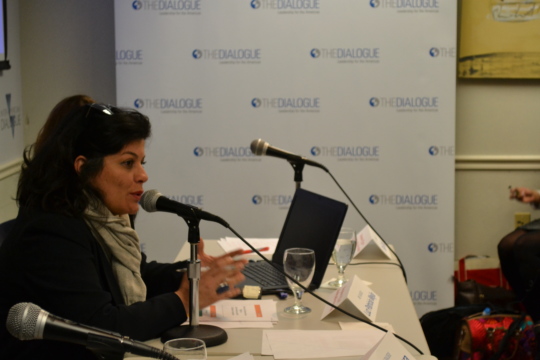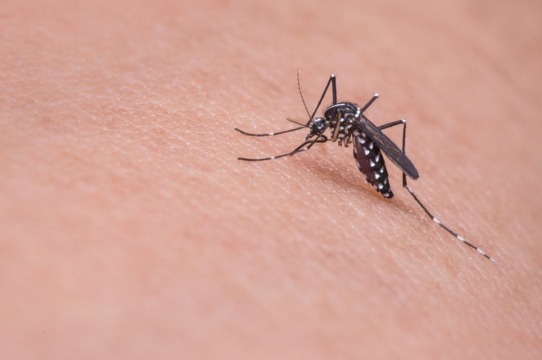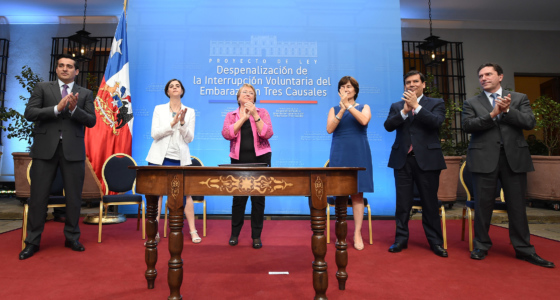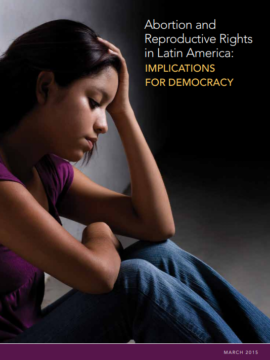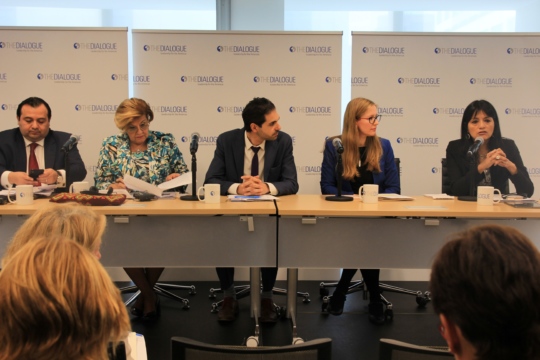 Video
Video
Civil Society Forum with Candidates for the Inter-American Commission on Human Rights
On May 21, 2019, the Inter-American Dialogue hosted three candidates for the Inter-American Commission on Human Rights.
On May 21, 2019, the Inter-American Dialogue hosted three candidates for the Inter-American Commission on Human Rights.
President Laura Chinchilla was awarded the “Women of the Decade in Public Life and Leadership” award at the Women Economic Forum on March 8, 2019 in Amsterdam.
Dialogue member Susana Malcorra released an open letter for “the need to achieve full gender equality and empowerment of women across all ambits.”
On December 4, the Inter-American Dialogue hosted an event titled Defending LGBTIQ Rights in Latin America: Obstacles and Advancements in Law and Culture.
On June 4, the Inter-American Dialogue, the Center for Reproductive Rights, and the International Planned Parenthood Federation co-sponsored an event titled “The Crisis of Democracy and Women’s Rights in the Americas.”
On May 24, Dialogue member Mia Amor Mottley was elected as Prime Minister of Barbados after the Barbados Labour Party (BLP) won the general election.
On December 6th, the Inter-American Dialogue hosted a half-day session on “Sexual & Reproductive Rights in Latin America & the Caribbean: Where Are We Now” in partnership with the Center for Reproductive Rights and the O’Neill Institute for National and Global Health Law.
Just three days into his presidency, on January 23, 2017, Donald Trump reinstated the so-called Global Gag Rule. The executive order, also known as the Mexico City Policy, prohibits all US federal money from funding international organizations that provide information about or support abortion rights.
Despite taking significant steps towards a more gender-balanced political system –notably the recent adoption of female representation quotas— Colombia, like many other Latin American countries, continues to struggle with the legacies of pervasive social, economic and political inequality that disproportionately affect women. The study gauges the effect that campaign finance has for aspiring female leaders, and puts it in the context of broader social and cultural barriers that hinder women’s political activism throughout the region.
The lack of adequate skills represents a bottleneck to productivity growth and to the ability of workers to obtain gainful employment in Latin America.
On April 6th, 2016, the Inter-American Dialogue hosted a discussion on “Criminal Abortion Laws in Latin America”.
In Brazil, the possibility of pregnant women with Zika having access to abortion has not entered the public debate.
While the overall landscape for reproductive rights showed little change in 2014, there is evidence of glacier-like movement toward easing restrictions on abortion.
Why is there such a lack of women in powerful seats running companies or sitting on boards in the region?
Latin American countries have some of the most restrictive reproductive health laws and policies in the world, particularly with regard to abortion. In part this stems from not recognizing reproductive freedom as a fundamental human right. However, imposing legal restrictions on abortion does not reduce the likelihood that women will seek this reproductive health service. Instead, harsh laws compel women to risk their lives and health by seeking out unsafe abortions.
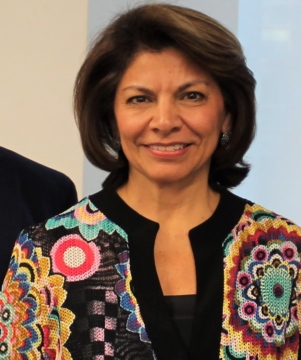
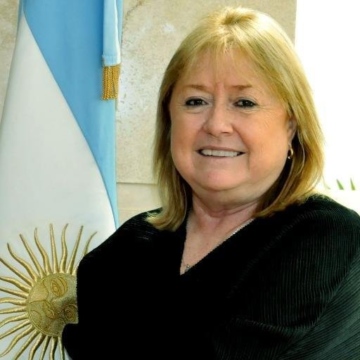
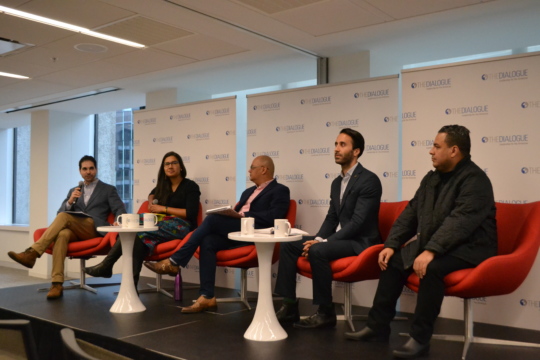 Video
Video
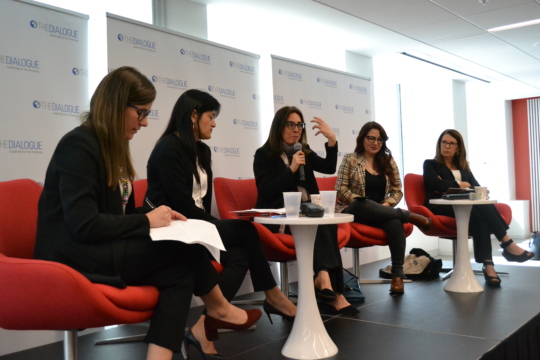 Video
Video
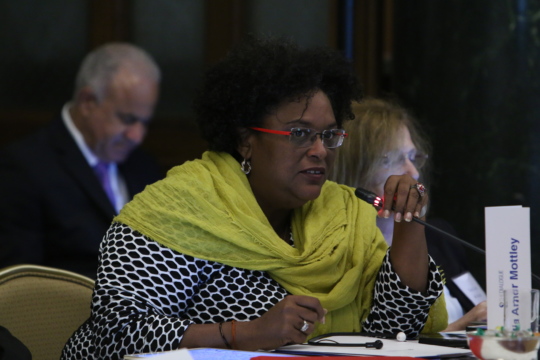
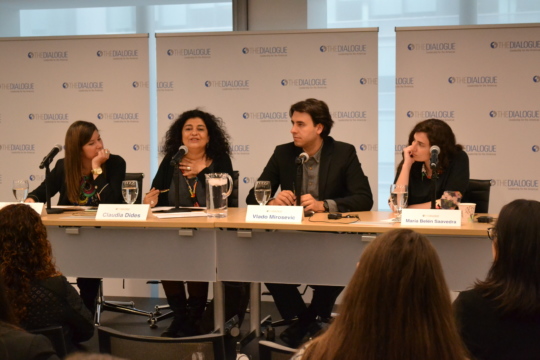 Video
Video
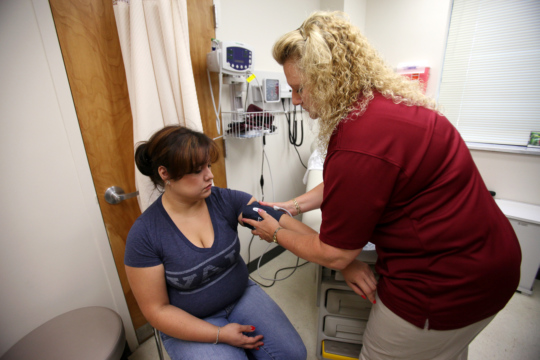
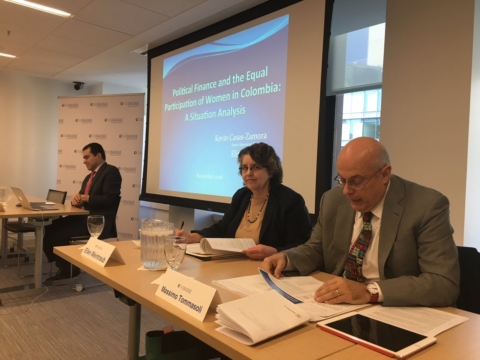
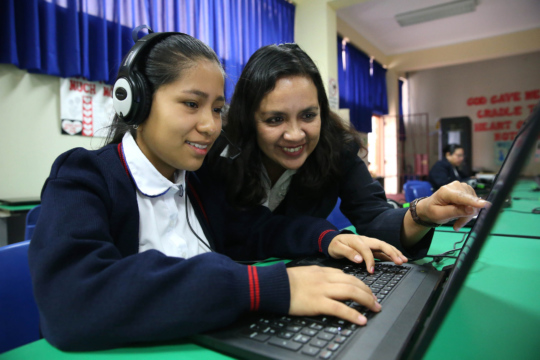 Video
Video
